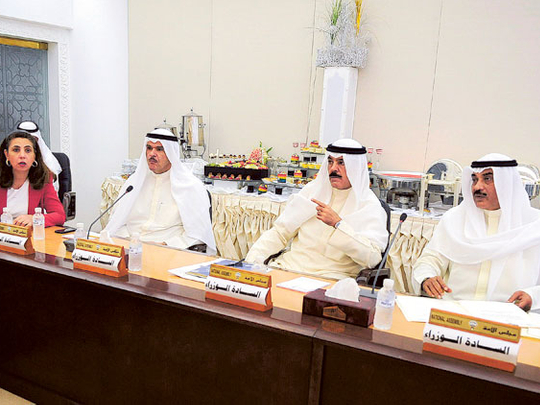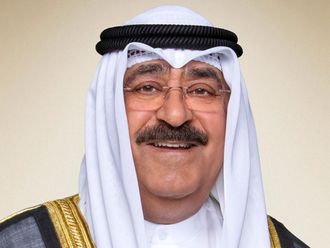
Manama: Kuwait’s education minister has dismissed claims that the school year would be postponed until the political situation in the region becomes stable.
“We have no intention to delay the re-opening of schools and we have not even talked about such a possibility,” Nayef Al Hajraf said. “The ministry is closely monitoring the situation in the region and will use the emergency plans it has drawn up if there is a need for them inside the schools. We are ready and we will take the appropriate actions and measures,” he said, quoted by the local media on Thursday. Students are expected to be back in classes next week following their summer vacation.
Kuwaiti officials have sought to assure the nation that the government had taken the necessary measures to deal with any fallout from the expected military strike against the regime in Syria.
“We are pleased with the level of readiness explained by the government,” parliament Speaker Marzooq Al Ghanim said following a meeting of 23 lawmakers with seven ministers to discuss the post-strike plans. “The government has given us a comprehensive presentation on how it will tackle the situation. The plans are reassuring and there is no need for concerns, particularly in regard to national security and food,” he said.
Foreign Minister Shaikh Sabah Al Khalid told the MPs that the government was ready to confront any situation.
“We will address all possibilities,” he said. “We are all in the same boat and our main objective is to promote security and tranquility in the country,” he said, quoted by local daily Al Rai.
Lawmakers at the meeting differed on the degree of support that Kuwait should have for the anticipated military strike, sources told the paper.
“There were those who called for Kuwait’s neutrality,” they said. “However, there were MPs, who fully supported the military action, arguing that it would put an end to the suffering of the Syrian people. They insisted on the Gulf dimension of the Kuwaiti stances, insisting on the significance of declaring a Gulf confederation to confront the attempts to swallow up the Gulf Cooperation Countries (GCC) individually.”
The GCC, established in 1981 as a political, economic and military grouping, includes Bahrain, Kuwait, Oman, Qatar, Saudi Arabia and the United Arab Emirates.
Talk about strengthening the alliance as it confronts threats to its national security by turning it into a union has gained in intensity after Saudi King Abdullah Bin Abdul Aziz Al Saud suggested the move at the GCC summit held in Saudi Arabia in December 2011.












